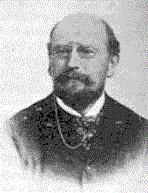Planning worship?
Check out our sister site, ZeteoSearch.org,
for 20+ additional resources related to your search.
- |
User Links
Person Results
Anonymous
Person Name: Unknown Composer of "PIETY" in Hymns of Worship and Remembrance In some hymnals, the editors noted that a hymn's author is unknown to them, and so this artificial "person" entry is used to reflect that fact. Obviously, the hymns attributed to "Author Unknown" "Unknown" or "Anonymous" could have been written by many people over a span of many centuries.
Anonymous
George W. Frazer

1830 - 1896 Person Name: G. W. Frazer, 1830-1896 Author of "What rich eternal bursts of praise" in Hymns of Worship and Remembrance George West Frazer
George W. Frazer
Thomas Clark
1775 - 1859 Composer (attributed to) of "PIETY"
Baptized: February 5, 1775, Canterbury, Kent, England.
Died: May 30, 1859, at his home in St. George’s Street, Canterbury, Kent, England.
A cobbler and choir trainer, Clark led the singing of the Psalms at the Wesleyan Chapel, Canterbury, and later at the Unitarian Church in Canterbury. It has been claimed he never actually joined the Unitarians, though he sympathized with them, and he resigned from the Methodists. Clark wrote a number of anthems, including "Awake Up, My Glory", "Daughter of Zion" and "Since I Have Placed My Trust." His other works include:
First Sett of Psalm and Hymn Tunes, 1805
Second Sett of Psalm and Hymn Tunes, circa 1810
Congregational Harmonist, 4 volumes (1828 to circa 1835)
The Sacred Gleaner, 1830
The Union Tune-Book, 1837 (co-editor)
Union Harmonist, 1841
Harmonized the second edition of the Union Tune Book for the Sunday School Union, 1842
The Juvenile Harmonist, 1842
David’s Harp—A Series of Original Tunes Composed Expressly to the Psalter, 1843
The Seraphim or Sacred Harmonist, 1843
British Psalmody, with Alexander Hume (Edinburgh, Scotland: 1844)
--www.hymntime.com/tch/
Thomas Clark
Ottiwell Heginbotham
1744 - 1768 Person Name: Ottiwell Heginbothom Author of "Blest Jesus, When My Soaring Thoughts" in The Cyber Hymnal Heginbothom, Ottiwell, born in 1744, and died in 1768, was for a short time the Minister of a Nonconformist congregation at Sudbury, Suffolk. The political and religious disputes which agitated the congregation, in the origin of which he had no part, and which resulted in a secession and the erection of another chapel, so preyed upon his mind, and affected his health, that his pastorate terminated with his death within three years of his appointment. His earliest hymn, "When sickness shakes the languid corse [frame]," was printed in the Christian Magazine, Feb. 1763. In 1791 the Rev. John Mead Ray communicated several of Heginbothom's hymns to the Protestant Magazine; and in the same year, these and others to the number of 25, were published as:—
Hymns by the late Rev. Ottiwell Heginbothom of Sudbury, Suffolk. Sudbury, Printed by J. Burket, mdccxciv.
These 25 hymns were repeated in J. M Ray's Collection of Hymns from various authors in¬tended as a Supplement to Dr. Watts's Psalms and Hymns, 1799, and 12 in Collyer's Collection, 1812. In modern collections in Great Britain and America the following are in common use in addition to those annotated under their respective first lines:—
1. Blest Jesus, when my soaring thoughts. Jesus, most Precious.
2. Come, humble souls; ye mourners come. Good Hope through Grace.
3. Come saints and shout the Saviour's praise. The Second Advent.
4. Come, shout aloud the Father's grace. Praise to God the Father.
6. Father of mercies, God of love. God the Father.
6. God of our life! Thy various praise. New Year.
7. Great God, let all our [my] tuneful powers. New Year.
8. Hark, the loud trumpet of our God. National Fast.
9. Hark, 'tis your heavenly Father's call. A Prayer to be used by the Young.
10. I ask not [honour] wealth, nor pomp, nor power. Wisdom and Knowledge desired.
11. Now let my soul, eternal King. Praise of the Gospel. Sometimes given as "To Thee, my heart, eternal King."
12. See, mighty God, before Thy throne. Fifth of November; a National Hymn.
13. Sweet peace of Conscience, heavenly guest. A good Conscience.
14. To Thee, my Shepherd, and my Lord. The Good Shepherd.
15. Unhappy city, hadst thou known. Christ weeping over Jerusalem. From this the cento, "And can mine eyes without a tear?" is taken.
16. When sickness shakes the languid corse [frame]. Resignation. Printed in the Christian's Magazine, Feb. 1763, and again in Hymns, &c, 1794.
17. Yes, I will bless Thee, O my God. Praise of the Father. The text is often altered. The cento "My soul shall praise Thee, O my God," in the Unitarian Hymn land Tune] Book, &c, Boston, 1868, is from this hymn.
Most of these hymns are in Collyer's Collection, 1812. There are also 8 in Hatfield's Church Hymn Book, N.Y., 1872, and 7 in the Songs for the Sanctuary, N.Y., 1865. [William T. Brooke]
-- John Julian, Dictionary of Hymnology
Ottiwell Heginbotham
Charles Stanley
1821 - 1890 Person Name: C. J. Stanley Composer (attributed to) of "PIETY" in The Cyber Hymnal Stanley, Charles, a Sheffield merchant, b. circa 1821, a member of the Plymouth Brethren, has published a large number of tracts and some volumes of verse, including The Jewel and the Star, 1855, and Wild Thyme, under the signature "C. S." (sometimes given as "Charles Sabine," in error). From Wild Thyme the hymns "Behold the Lamb of God! Behold, believe, and live" (Faith), and "He gave me back the bond" (Pardon), are taken.
--John Julian, Dictionary of Hymnology, Appendix, Part II (1907)
Charles Stanley


 My Starred Hymns
My Starred Hymns


